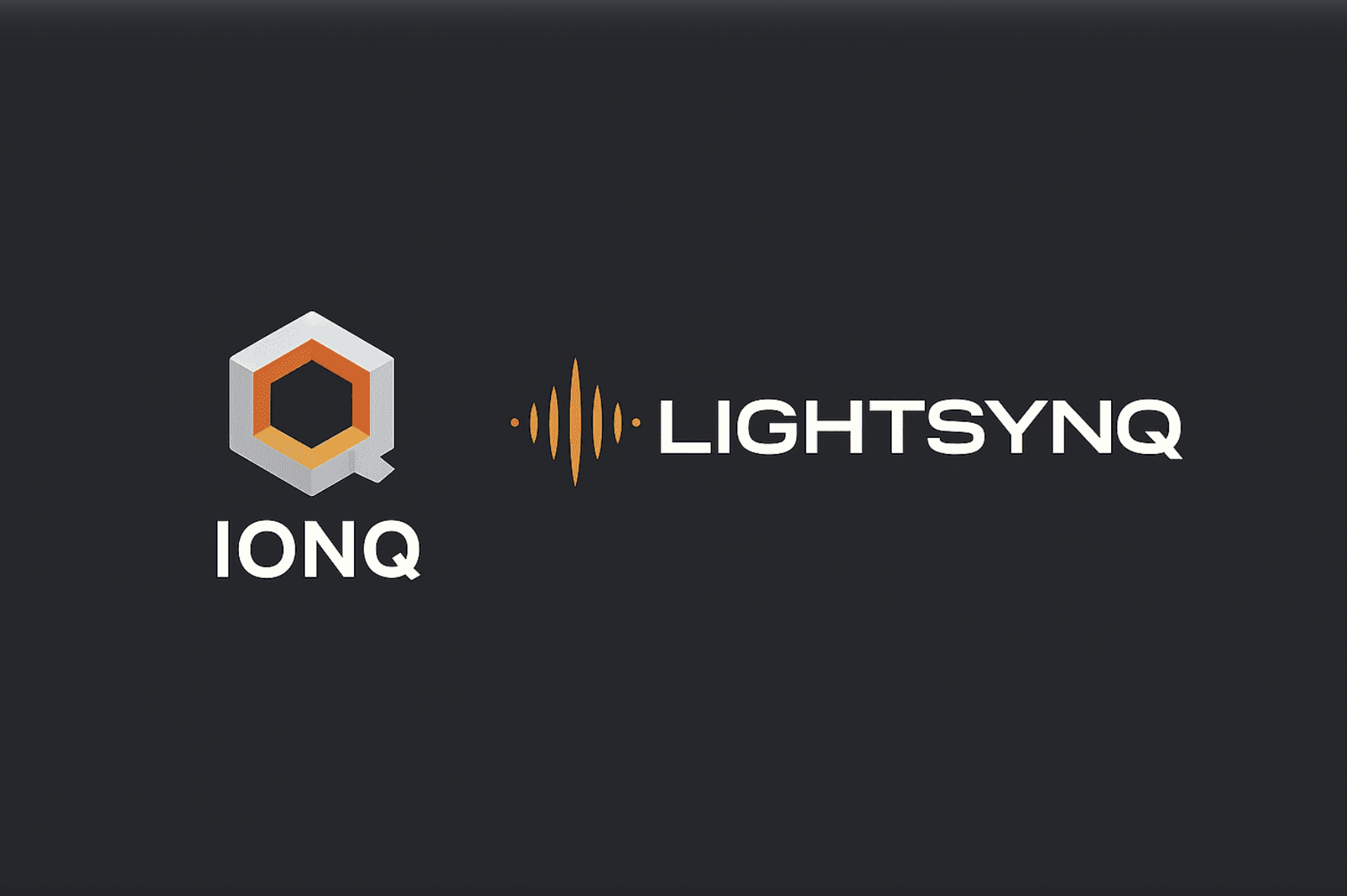Insider Brief
- IonQ has completed its acquisition of Lightsynq Technologies, issuing over 12.3 million shares to bring advanced quantum networking and photonic interconnect technology in-house.
- Lightsynq’s team and intellectual property are expected to accelerate IonQ’s roadmap toward scalable, modular quantum systems and support future quantum internet applications.
- The acquisition builds on IonQ’s recent expansion efforts, including prior purchases of Qubitekk and ID Quantique and partnerships with U.S. defense and research agencies.
IonQ has completed its acquisition of Lightsynq Technologies, adding a suite of quantum networking technologies and more than 20 quantum memory-related patents to its portfolio, in a move that could push the company closer to delivering interconnected, data center-scale quantum systems.
The deal, which closed on May 30 and was disclosed in a June 2 SEC filing, was completed entirely in IonQ stock. A total of 12,377,433 shares of IonQ common stock were issued as consideration for the transaction, with some shares and stock options subject to vesting conditions based on continued employment of key Lightsynq personnel. The SEC filing indicates that the issuance was made under private offering exemptions, avoiding public registration of the shares. A registration rights agreement was signed to provide Lightsynq shareholders the ability to register their shares for future resale.
The acquisition follows IonQ’s broader strategy to secure technical leadership in both quantum computing and networking. Lightsynq was co-founded by a team of Harvard- and AWS-trained researchers — Dr. Mihir Bhaskar, Dr. Bart Machielse, and Dr. David Levonian — who specialized in quantum memory and photonic interconnects. Their startup developed hardware to link quantum systems together efficiently, supporting modular architectures and long-distance quantum communication.
According to IonQ’s May 7 announcement, Lightsynq’s core technology will be integrated into IonQ’s quantum processing units to speed up internal communication between qubits and between processors. This is expected to support larger, fault-tolerant quantum systems, enabling IonQ’s goal of scaling beyond tens of thousands to potentially millions of qubits. Lightsynq’s photonic interconnect architecture is also considered a foundational element for future quantum internet infrastructure.
IonQ CEO Niccolo de Masi framed the acquisition as a way to “scale our quantum networks through quantum repeaters, and scale our quantum compute power through photonic interconnects.” He described Lightsynq’s expertise as directly aligned with IonQ’s roadmap for multi-nodal quantum systems, systems where quantum computers can work together across a network with high fidelity.
Lightsynq’s CEO Dr. Mihir Bhaskar said the integration with IonQ would enable the combined company to move quickly toward “data-center-scale quantum computers,” a long-held aspiration in the industry for systems powerful enough to offer broad commercial utility.
He said in the May announcement: “Our photonic interconnect will integrate with IonQ’s quantum processing units (QPUs) to boost connection speeds and ensure long term market-leading scale and power in quantum computing. Our interconnect will also be critical for IonQ to build the quantum internet, enabling entirely new applications for customers in the financial, telecommunications, aerospace, and defense sectors.”
This acquisition is the latest in a string of moves by IonQ to deepen its foothold in quantum networking. Earlier this year, the company announced its joint venture with the Electric Power Board (EPB) to launch the country’s first public quantum networking and computing hub in Chattanooga, Tennessee. It has also acquired quantum networking firms Qubitekk and ID Quantique, and signed contracts with U.S. defense agencies including the Air Force Research Laboratory and the Applied Research Laboratory for Intelligence and Security.
The combination of Lightsynq’s photonic interconnect technology with IonQ’s trapped-ion quantum computers could address some of the biggest engineering hurdles in quantum computing: namely, the ability to scale while maintaining coherence, connectivity, and fault tolerance. If successful, the merger could give IonQ a structural advantage in building large-scale, distributed quantum systems.
The acquisition is effective immediately, and IonQ has not disclosed financial projections tied to the transaction.


0 Comments